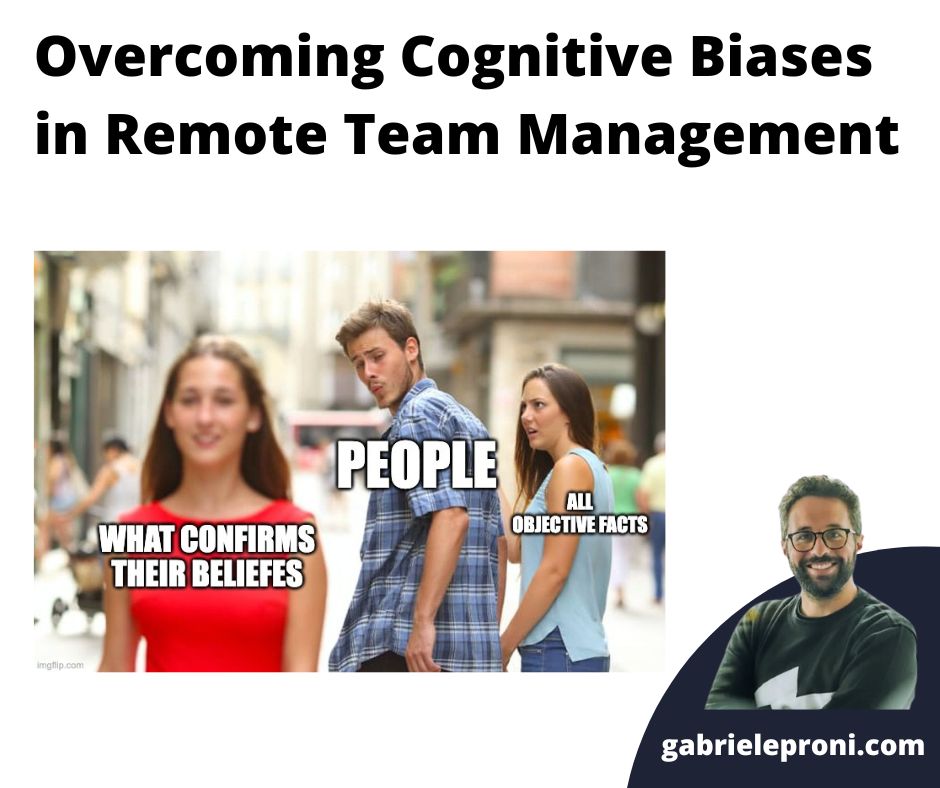Overcoming cognitive biases in remote team management can have a significant impact on the way you act as a remote leader.
Adriana Tica’s newsletter inspired me to write this issue.
If you are interested in getting upcoming trends & marketing ideas and understanding why people buy, I suggest you check it out!
As remote leaders, we must be aware of cognitive biases that may affect our decision-making and prevent us from creating insightful and future-proof scenarios for our team.

Here are some common biases to watch out for.
1) Availability Bias
It’s the tendency to make decisions based on examples, information, or recent experiences that are more readily available.
Example: after experiencing challenges with communication on your team, you may assume that all remote teams have communication issues.
To avoid this bias, gather data and seek diverse perspectives from your team members.
2) Action Bias
It’s the urge to take action too soon, often driven by the pressure to act or overconfidence.
Example: if your team is struggling with productivity, you may be tempted to implement a new tool or process immediately without fully understanding the root cause of the issue.
Instead, take the time to gather information and analyze the situation before taking action.
3) Optimism Bias
It’s the tendency to overestimate the likelihood of positive outcomes and underestimate the possibility of negative ones.
Example: you may assume that your team will quickly adapt to a new tool or process without considering potential roadblocks.
To avoid this bias, consider alternative scenarios and potential challenges.
4) Confirmation Bias
We usually seek out information confirming our beliefs and ignore information contradicting them.
Example: if you believe that remote work is inherently less productive than in-person work, you may only seek evidence supporting this belief.
To overcome this bias, seek out diverse perspectives and actively seek out evidence that challenges your beliefs.
TLTR; Overcoming Cognitive Biases in Remote Team Management
As remote leaders, we must be aware of cognitive biases impacting our decision-making. Watch out for availability bias, action bias, optimism bias, and confirmation bias.
To overcome these biases and create a happy, successful remote team, consider the following suggestions:
- Gather data and seek out diverse perspectives
- Take the time to analyze the situation before taking action
- Consider alternative scenarios and potential challenges
- Seek out various mindsets and actively challenge your beliefs
About the Newsletter
1 actionable tip on remote management in your inbox every Saturday morning.
Subscribe